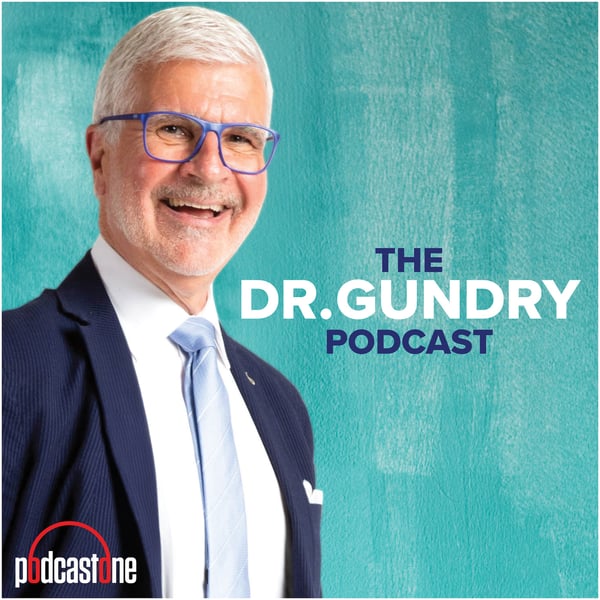The BEST Morning Drinks to Stop Bloating? - Dr. G's Quick Health Tip | EP 325.B
The Dr. Gundry Podcast
PodcastOne
4.6 • 1.7K Ratings
🗓️ 7 November 2024
⏱️ 17 minutes
🧾️ Download transcript
Summary
Transcript
Click on a timestamp to play from that location
| 0:00.0 | Welcome to the Dr. Gundry podcast, where Dr. Stephen Gundry shares his groundbreaking research from over 25 years of treating patients with diet and lifestyle changes alone. |
| 0:11.1 | Dr. Gundry and other wellness experts offer inspiring stories, the latest scientific advancements, and practical tips to empower you to take control of your health and live a long, happy life. |
| 0:24.0 | First things first, what is bloating? Well, the truth is, bloating is a natural consequence of bacteria |
| 0:32.8 | eating the foods they want and fermenting them and producing gases. They're producing these gases, |
| 0:40.7 | which we now call postbiotics. These gases are actually incredibly beneficial to your health. |
| 0:48.5 | In fact, I devoted an entire book, The Energy Paradox, to try and convince you to step on the gas. Now, the whole idea |
| 0:57.8 | that we should try to eat foods to prevent bloating is actually one of the dumbest ideas I've ever |
| 1:04.2 | heard. Just this past week, a beautiful study was published showing that hydrogen gas, yes, that gas that the Hindenberg blow up |
| 1:14.2 | with, is incredibly important for giving bacteria that make buterate, which is the holy grail |
| 1:22.0 | of short chain fatty acids that I wrote about in unlocking the keto code, the substances they need to make butyrate. |
| 1:31.1 | And that the more hydrogen gas that you have, that you produce, the better you are at making |
| 1:38.7 | butyrate. You think that's not important? Well, as they've written about before, a study in Japan, looking at Parkinson's |
| 1:46.2 | patients and mild dementia patients, they did not have bacteria that made hydrogen gas. As compared to |
| 1:55.7 | people who didn't have these problems, they had bacteria that made hydrogen gas. When they gave these individuals |
| 2:03.8 | hydrogen water to drink, hydrogen dissolved in water, they got better. Their symptoms improved. |
| 2:10.6 | So the idea that we don't want to form gas, that's completely wrong. Now you hear that gas production is a marker that you have small |
| 2:23.6 | intestinal bacterial overgrowth, sebo. Now where did this idea come from? First of all, up until a very few years ago, we had no idea that there were any bacteria that lived in our small intestine. |
| 2:39.6 | We knew that there were bacteria in our mouth. |
| 2:41.9 | We knew that there were bacteria in our colon, our large bowel. |
| 2:46.6 | We even knew that there was a bacteria that liked to live in our stomach, H. Pylori. |
| 2:50.6 | But we really had no way of sampling whether bacteria were in our intestines or not. |
| 2:58.4 | And I won't go into why we didn't know, but let's just say we didn't have sampling techniques. |
... |
Please login to see the full transcript.
Disclaimer: The podcast and artwork embedded on this page are from PodcastOne, and are the property of its owner and not affiliated with or endorsed by Tapesearch.
Generated transcripts are the property of PodcastOne and are distributed freely under the Fair Use doctrine. Transcripts generated by Tapesearch are not guaranteed to be accurate.
Copyright © Tapesearch 2025.

